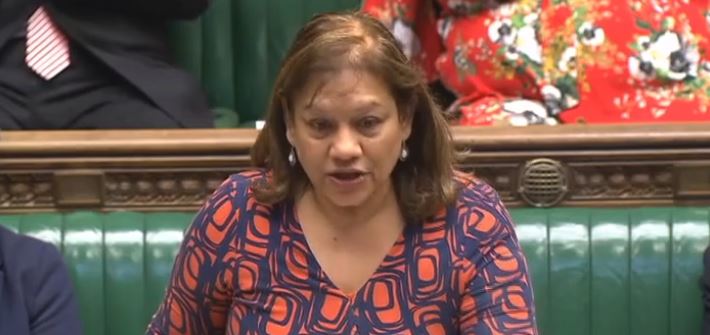- 11/05/2018
- Posted by: Valerie Vaz MP
- Category: News

As Shadow Leader of the House, I responded to an urgent question to the Leader of the House on the Government’s policy on introducing money resolutions for private Members’ Bills. Below is my speech in full:
My hon. Friend the Member for Manchester, Gorton (Afzal Khan) was right to ask for this urgent question, and you were right to grant it, Mr Speaker.
The Leader of the House knows that Members from all parties raised this matter with her last week, and yet again this week the money resolution was refused. She quotes from “Erskine May”. It is clear that money resolutions should automatically follow Second Reading. Any tome on the workings of Parliament, be it “Erskine May” or “How Parliament Works”, states that it normally follows Second Reading. Not to introduce a money resolution is an unreasonable conclusion that no reasonable decision-making body would come to.
As my hon. Friend said, the will of the House was clear: the Bill got its Second Reading unanimously. The instructions given to the Boundary Commission were constrained and his Bill would do a number of things to those constrained instructions. It would expand the electorate by providing for the use of new electoral registers based on the latest figures following the referendum and the 2017 election. That is reasonable. The old instructions tied the hands of the Boundary Commission by maintaining the arbitrary figure of 600 to 650 Members, on no evidence. That is unreasonable.
This is an unprecedented position. No money resolution has been agreed for my hon. Friend’s Bill, yet other Bills behind it have had theirs. All the Bill would do is correct the erroneous instructions to the Boundary Commission. Will the Leader of the House confirm whether the Government are trying to reduce the effectiveness of the legislature as against the overpowering Executive? Will there be a reduction in the payroll vote of MPs? In what circumstances would it be unusual for a money resolution not to follow a Second Reading? If there are no abnormal circumstances in this case, when will one be granted on this important Bill, which goes to the heart of our democracy and the representation of our constituents?

